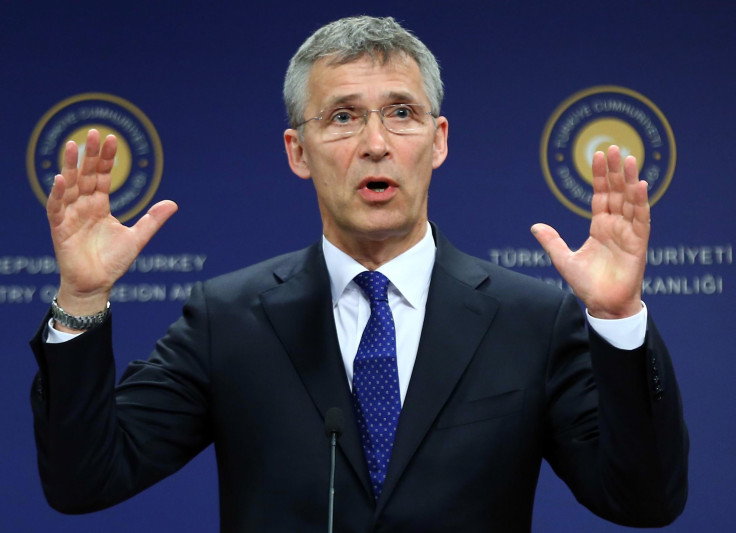NATO’s Jens Stoltenberg Says Number Of Refugees Crossing Aegean Sea Fell ‘Significantly,’ Talks About Syrian Conflict

The number of refugees making their way into Europe from Turkey via the Aegean Sea has fallen significantly, NATO's Secretary General Jens Stoltenberg said Wednesday. NATO has been patrolling the Aegean Sea since February to curb human trafficking, which has reportedly helped slow the influx of refugees making the dangerous crossing.
“Turkey is at the forefront of a very volatile region. From terrorism and conflict in the Middle East and North Africa to Russia’s destabilizing military activities. Turkey is playing a crucial role in tackling human trafficking in the Aegean Sea,” Stoltenberg said, at a press conference with Turkish Foreign Affairs Minister Mevlut Cavusoglu in Ankara. He added that there has been “very good” cooperation between NATO’s Standing Maritime Group, which was formed in February, and the Turkish coastguard and navy.
According to the recent deal struck between Turkey and the European Union, those arriving in Greece from the Turkish coast after March 20 will be deported back to Turkey unless they apply for asylum in Greece. And, the 28-member union is required to resettle one Syrian refugee for each refugee Greece sends back to Turkey. In return, Turkey has been given billions of dollars in concessions, and has been promised the speeding up of talks on its membership bid to the bloc. Currently, about 2.7 million Syrian refugees live in Turkey.
The NATO chief also said that Turkey was breaking the business model followed by the human traffickers. “Figures from different international organizations confirm that the numbers of migrants and refugees crossing the Aegean Sea is now going down significantly. And it confirms that our collective efforts are making a difference. We need to remain flexible because the people smugglers can shift their routes very rapidly,” he said.
However, he warned that the number could rise if NATO and its partners conclude their efforts too early.
Stoltenberg also underlined the urgency to find a peaceful solution to the conflict in Syria, which currently has in place a fragile ceasefire.
He said that despite Russia announcing a partial withdrawal of forces from Syria, Moscow still has a “considerable military presence” to support Syrian President Bashar Assad’s rule. Stoltenberg also accepted that the ceasefire implemented in Syria between the rebel factions and the government forces in the country was “under strain” but it was still the “best basis for a negotiated, peaceful solution to the crisis.”
© Copyright IBTimes 2025. All rights reserved.






















